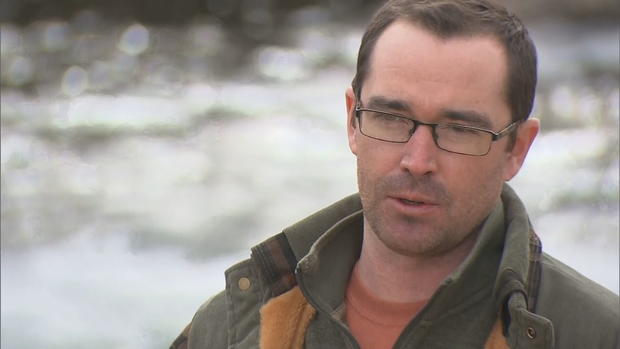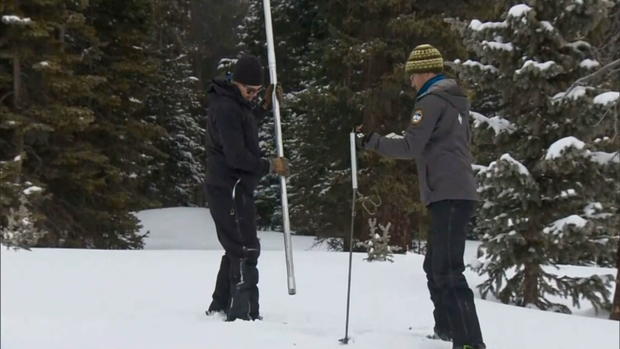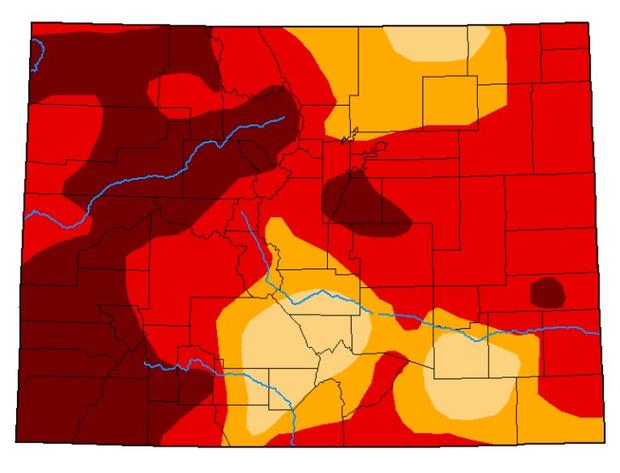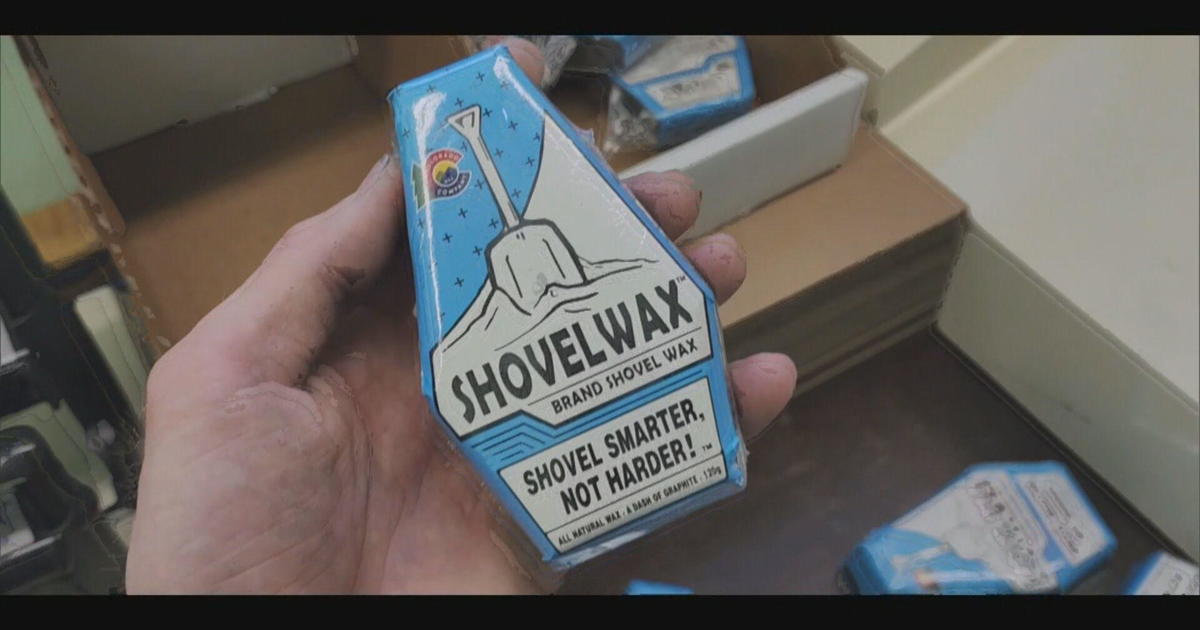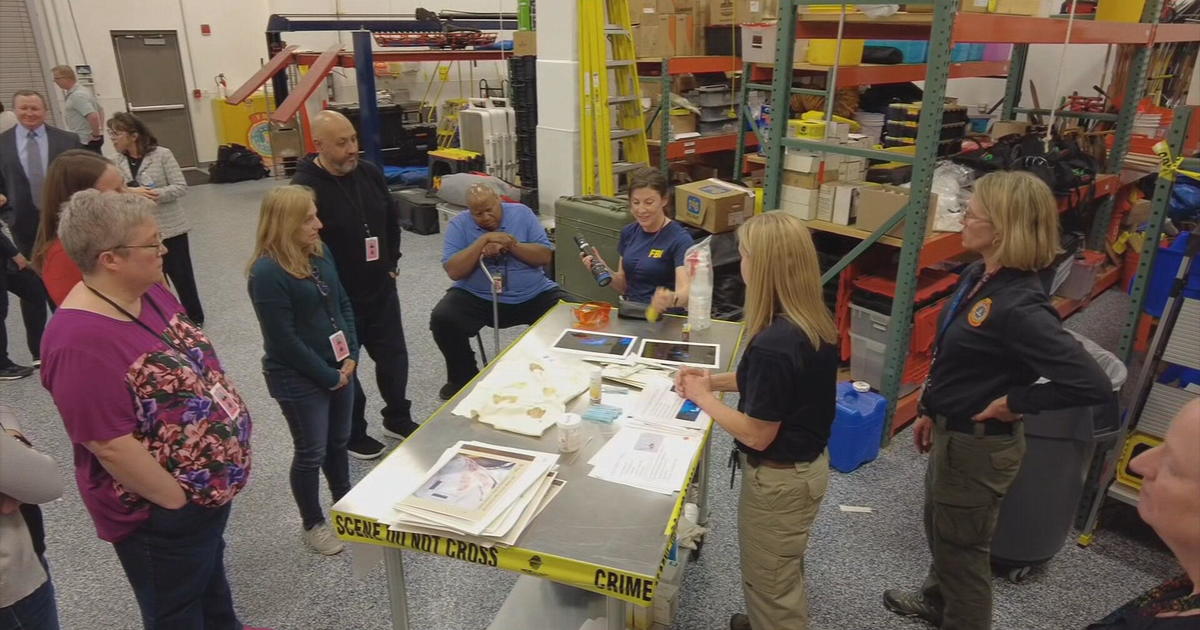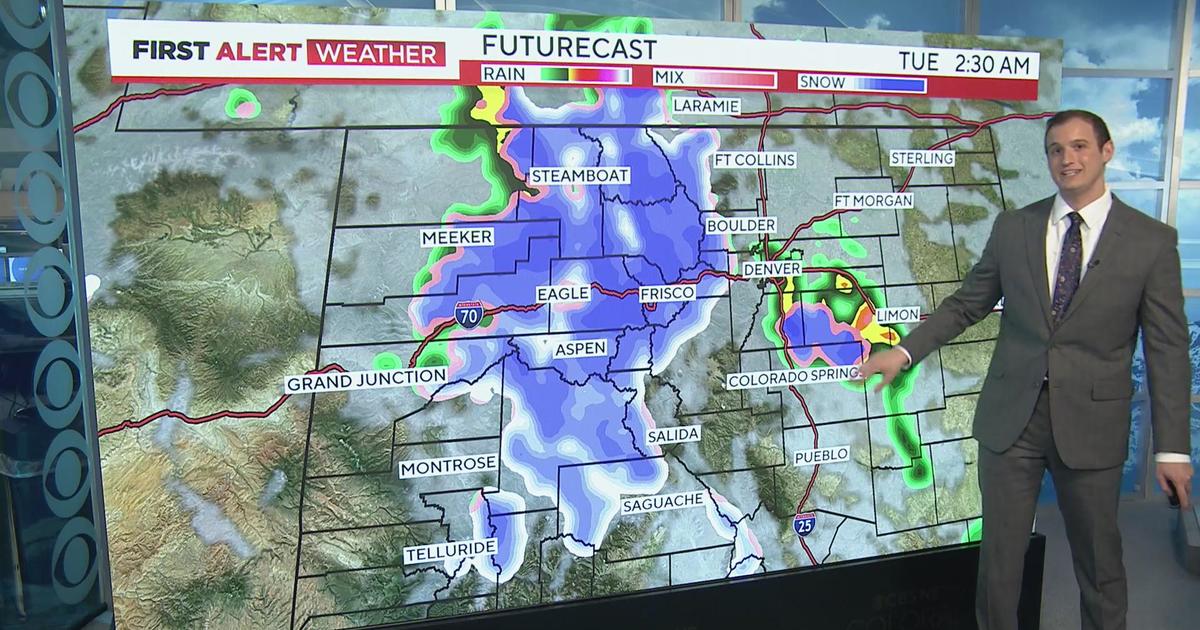Concern For Colorado Reservoir Water Levels As Drought Conditions Persist
GOLDEN, Colo. (CBS4) - There are many ways to gauge the severity of a drought. This winter in Colorado, all you have to do is look around.
"The stream flows across the state have been really, really, really down throughout the whole fall season, so that is an indicator," said Karl Wetlaufer.
Wetlaufer is a rafter, so he pays attention to stream flow. It's also part of his job as a hydrologist with the Natural Resources Conservation Service Snow Survey Program.
"It really affects many factors of life in Colorado. From your municipal water supplies, to be able to supply agriculture hydropower in some places, recreation," he said.
This year, Colorado is especially far behind.
"A big part of the story is just drought going into the winter and that's without question going to roll over to next year. So, even if this additional snow brings us back to normal levels for this time of year, there's still a long way to go."
Wetlaufer met CBS4 near Clear Creek in Golden on Thursday to talk about the NRCS data collected over the last several months.
"We really are seeing it in the data. It really was as dry as everyone is saying," he continued. "Our May precipitation in the mountains since May 15, about half of our sites in the state had the second lowest or lowest on record, going back about 40 years."
This type of data can be collected in several ways, but for Wetlaufer, one of the methods is through the SNOTEL Network.
"Which stands for snowpack telemetry, and those sites have been across the west for a little over 40 years now, in varying lengths," said Wetlaufer. "We also have a network of manual stations called snow courses, and those actually go back to the mid 1930s so we use those for snowpack, precipitation, mountain temperatures. They also monitor soil moisture conditions, which is a really big challenge this year."
The challenge with the dry soil is just how dry it is. Not only for wildfire conditions but when it comes to spring runoff as well.
"We're going into winter with such a severe drought, we're anticipating once that snow starts to melt, those dry soils are going to soak up a lot of the water."
Water soaked up by dry soil can't fill reservoirs, and while it doesn't mean towns will run out of water, it's not far-fetched.
"I know in 2012 there were concerns on the Front Range reservoirs which had just gotten so low that they were just running out of water. But that's something that the public can help with. Just ... conserve on watering your lawns or anywhere around the house," said Wetlaufer.
While communities can do their part to conserve, a larger part of it is up to Mother Nature.
"If we maintain on the same trajectory and don't start getting a lot more big snowstorms, water supplies for all sorts of different activities are going to be a major concern next year."
Overall, Denver Water says its reservoirs remain around 78 percent full, with the average for this date being 82 percent -- slightly below typical.
Todd Hartman with Denver Water says Lake Dillon, for instance, is lower than normal primarily because of the need to pull more water from the reservoir during the hot and dry fall, when demand was unusually high.
Hartman referenced the state drought monitor, which is covered in red. He says despite the current conditions, there's still time to make a dent in the deficit.
"Overall, there's a lot of winter still in front of us, including what are typically big snow months in March and April, so we remain hopeful. But, of course, we'd like to see more snowpack and need to prepare our customers for even greater conservation this summer. Now's a great time to address indoor leaks and think about shifts in outdoor landscaping and sprinkler settings that could save water," said Hartman.
RELATED: Colorado Statewide Drought Situation Has Denver Water Officials Worried
